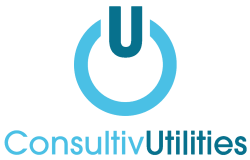Find out how two Energy Intensive Industries (EII) Schemes could benefit your business.
If your organisation is operating within Energy Intensive Industries (EII), the Consultiv team can support you in securing compensation and exemption to help alleviate the impact of renewable energy taxes and non-commodity charges.
There are two important schemes that can financially benefit your businesses if you qualify as an energy-intensive firm:
- EII compensation scheme
- EII exemption scheme
EII compensation
To improve the competitiveness of the UK’s most energy-intensive businesses, the UK government has implemented the Energy Intensive Industries (EII) scheme to mitigate the impact of the EU and UK carbon trading schemes. Through this scheme, eligible businesses can apply for compensation for a proportion of the costs of their energy bills.
Specifically, this scheme entitles applicants to “exemption from the indirect costs of funding Contracts for Difference (CFD), the Renewables Obligation (RO) and the small-scale Feed in Tariff (FIT).”
Successful applicants receive certification from the government, providing them with a discount on future bills of up to 100% of the renewable tax costs, and up to 60% of the other non-commodity electricity charges.
Who qualifies for EII compensation?
The EII compensation scheme focuses on the most ‘at risk’ sectors in the UK. For your business to qualify, you will need to demonstrate that you are ‘energy-intensive’. To do this, the government uses a filter test that requires your organisation to spend a certain percentage of your Gross Value Added (GVA) on electricity. This is a sum of EBITDA and wages – including any director remuneration and pension contributions. Businesses passing this test are then classified as ‘energy-intensive’ for the purposes of the scheme.
Qualifying manufacturing industries include:
- Textiles
- Wood
- Pulp and paper
- Glass fibres
- Fertilisers
- Chemicals
- Iron
- Steel
- Aluminium
- Lead
- Zinc
- Tin
- Copper
- Battery production
EII exemption scheme
This scheme helps EII businesses stay competitive by allowing eligible applicants to get partial compensation for their energy costs. It provides successful applicants with an “exemption from the indirect costs of funding Contracts for Difference (CFD), the Renewables Obligation (RO) and the small-scale Feed in Tariff (FIT)”, and other non-commodity costs.
As a successful applicant, you will receive a certificate providing your business with a discount of up to 100% of the renewable tax costs, and up to 60% of the other non-commodity electricity charges on future energy bills. The scheme focuses on primary and secondary industrial sectors, including the manufacturing, engineering, mining, and quarrying sectors.
Who qualifies for EII exemption?
In order to qualify for EII exemption, your businesses will need to complete a two-part test.
This includes both your business’s financial information and the sector specific production output.
The ‘20% test’ requires your business to demonstrate it’s electricity intensity is 20% or over. Meaning that your electricity costs amount to 20% or more of your GVA over the specified period.
The scheme focuses on primary and secondary industrial sectors, including the manufacturing, engineering, mining, and quarrying sectors.
Qualifying manufacturing industries include:
- Wood and paper
- Rubber
- Glass
- Plastics
- Ceramics
- Metal casting
- Chemicals
- Fertilisers
- Battery production
- Malts
- Grain milling
- Metal production
- Construction materials
- Animal feed
- Poultry Processing
- Refractory product
See how we can help
We can support Energy Intensive Industries (EII) to secure both compensation and exemption. Our team can provide you with a clear and defined process, offering valuable advice and support throughout your application.
Find out more
If you think you could be eligible for Energy Intensive Industries support, then get in touch with our team or call us on 0191 250 8805.

